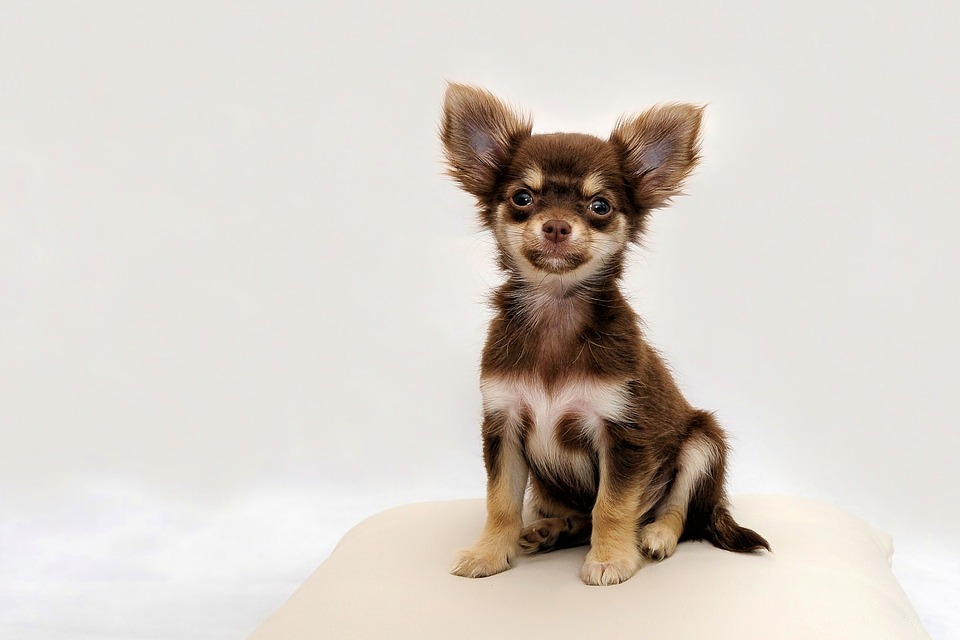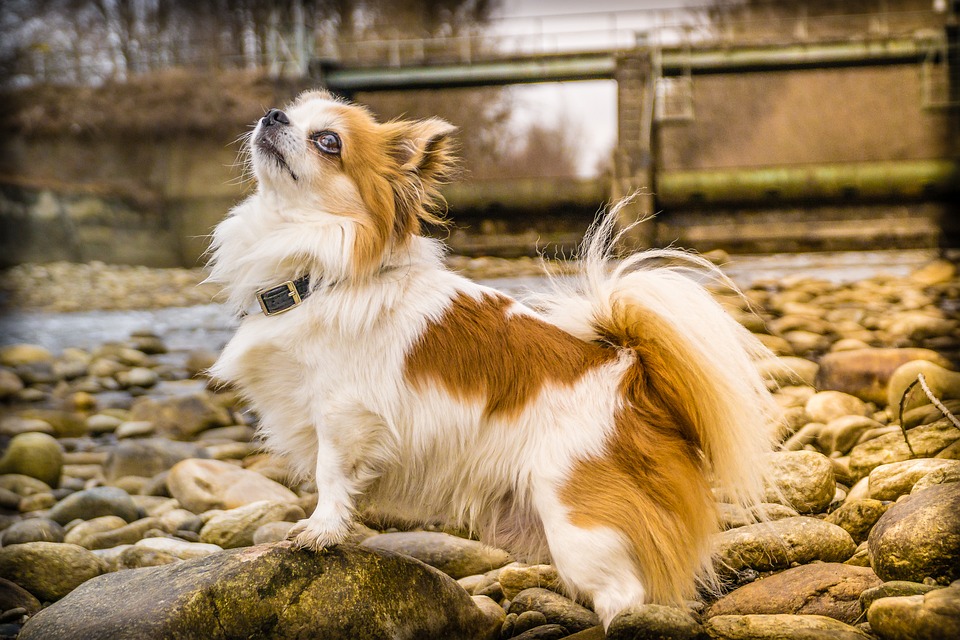The Chihuahua
Vital Stats of the Chihuahua
- Dog breed group: Companion Dogs
- Height: 6-9 inches
- Weight: 3-6 pounds
- Lifespan: 12-20 years
Physical Characteristics of Chihuahuas

Chihuahuas are small dogs that come in a variety of colors and markings. In addition, they can have either long or short coats. However, they all have large, alert ears and big moist eyes.
The claws of this breed are great for all types of digging. Their tails are long, high, curved over the back and have tapering. Chihuahuas also have short, level backs, with sprung ribs and shoulders that are well laid back.
The Chihuahua’s Personality

This companion dog is saucy and alert, with a mind of its own. Chihuahuas might not be able to talk, but that doesn’t prevent them from letting you know exactly what they want. Typically, this is plenty of quality time with their favorite person. This breed often has much devotion to a particular person in the family. This can even become obsessive about their desire to be with them and protect them. If a person is holding them and someone approaches the person holding them, this breed will make every effort to protect his person.
Despite the tiny size, Chihuahuas are fearless and never timid. If you see him shivering, it is generally due to the following:
- cold
- stress
- excitement
Therefore, this is why you see many Chihuahuas wearing sweaters.
Caring for Chihuahuas
Despite the small size of this breed, they need exercise and training just like all dogs. The amount of energy an adult Chihuahua has can be surprising. These dogs will endlessly chase squirrels in the backyard and are willing to play as long as you are.
Chihuahuas enjoy walks, supervised romps around the yard and retrieving toys. They’ll go until they drop. Therefore, it is essential to ensure they don’t tire themselves out, particularly on hot Texas days. As much as this breed loves playing outside, they should never live outside. Chihuahuas are not safe from raptors such as hawks, coyotes or other larger dogs that could get into your yard.
Training a Chihuahua can be an enjoyable task, as they are successful in several different dog sports such as agility and obedience. However, basic obedience class is important even for a Chihuahua who’s strictly a companion. Your pup will meet many different dogs and people in class. Therefore, this contributes to his socialization, and he will learn the manners all dogs need to know.
Health of Chihuahuas

Chihuahuas don’t have any major health problems, but like all breeds they can be born with or acquire certain conditions. While not all Chihuahuas will get any or all of these diseases, it’s essential to be aware of them. The following conditions may affect Chihuahuas:
- Patellar Luxation: Also known as “slipped stifles,” this is a common issue in small dogs. It causes lameness in the leg or abnormal gain, sort of like a skip or a hop.
- Hypoglycemia: Commonly known as low low blood sugar, hypoglycemia is a possible problem with toy breed puppies.
- Heart Murmurs: Heart murmurs are a result of a disturbance of blood flow through the chambers of the heart. This is an indication that there may be a disease or condition of the heart. These may require monitoring and treatment.
- Pulmonic Stenosis: This congenital heart disease occurs when blood does not flow properly through the heart. This occurs as a result of a malformed pulmonic valve, which causes an obstruction.
- Collapsed Trachea: A collapsed trachea is when the rapid inhalation of air causes the trachea to flatten. This can make it difficult for air to enter the lungs.
- Hydrocephalus: Because of a congenital defect, obstruction or trauma during birth that places pressure on the brain, cerebrospinal fluid (CSF) can accumulate in the brain. This causes the head to appear swollen or enlarged, but an ultrasound can confirm the diagnosis if necessary.
- Open Fontanel: Chihuahuas are born with a soft spot on the top of their heads. Typically the soft spot closes, much like a baby’s will, but sometimes one will not close fully.
History of Chihuahuas
The Chihuahua is a native of Mexico, with many myths surrounding his ancestors. Some believe these dogs were spirit guides that protected souls as they traveled the underworld. The stories about this breed’s origins are interesting. However, there’s no real evidence about how long they have existed or that they were known to the Aztecs or others who inhabited Mexico before the Spaniards came.
There are some dog experts that believe Chihuahuas were one of the first native dogs of the Americas, and others that were brought to the New World after the Spanish conquest of Mexico. Some others believe the tiny dogs may have originated as miniaturized versions of pariah dogs, the nondescript brown dogs with prick ears that result when dogs are left to breed on their own. Regardless, this breed takes its name from the state of Chihuahua, where late 19th century American tourists first encountered the tiny canines.
For more information on the Chihuahua or other dog breeds, don’t hesitate to contact us here at All Pets Veterinary Medical Center with the link below!
















